Nov
23
2010
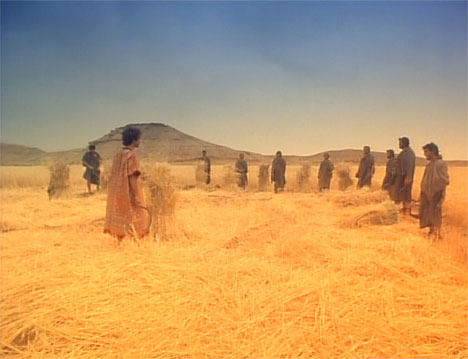
“Therefore I say to you, the kingdom of God will be taken from you
and given to a nation bearing the fruits of it.” Matthew 21:43
We unpacked the “face of the deep” of Day 1 and the “flat universe” created on Day 2. Time to analyse Day 3! Continue reading
Comments Off | tags: Add new tag, Covenant Theology, Creation Week, Firstfruits, Genesis, Joseph, Literary Structure, Tabernacle | posted in Bible Matrix, Biblical Theology, Creation
Nov
12
2010
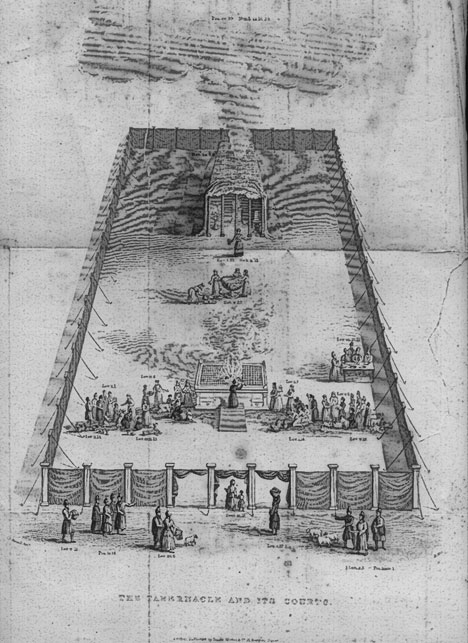
Joshua Marchlewski has outlined the chiasm in Leviticus 24:13-23 (reposted here with his permission): Continue reading
1 comment | tags: Leviticus, Literary Structure, Moses | posted in Bible Matrix, Biblical Theology, Quotes
Oct
25
2010

James Jordan Interview
A reader wrote:
After spending about two weeks on Bible Matrix, I’ve found that my greatest challenge has been learning to think differently. Have you written anything on learning how to make the transition from thinking about the Bible as a specimen in a laboratory to thinking about the Bible as a work of art? I sense that to communicate this stuff to the average Joe (and even to take on this mode of thought as my own) it would be helpful to know how to explicitly go about making that transition. Or maybe you see that as part of the problem? This stuff is more caught than taught? Continue reading
Comments Off | tags: James Jordan, Literary Structure, Music | posted in Biblical Theology
Oct
23
2010
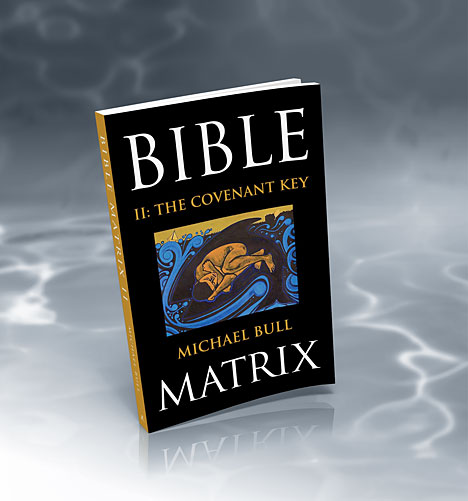
“Let’s face it, even daytime television
is more inspiring than your sermons.”
Ray Sutton’s 5-point Covenant model is crucial when it comes to making sense of the judgments of God, both the blessings and the curses. As he says in his book That You May Prosper, “Everyone talks about the Covenant, but nobody does anything about it.”
When I was writing Totus Christus, I thought it was only natural that the 7-point Creation pattern and the 5-point Covenant pattern could be combined. Transcendence is Light. Testing and Ethics matched. The positive and negative Sanctions were quite obviously the two goats on the Day of Atonement (Ebal and Gerizim). So it was only a matter of figuring out how the 5 of Words becomes a 7 in history. [1] Continue reading
7 comments | tags: Covenant Theology, Eric Rauch, James Jordan, Literary Structure, Preaching, Ray Sutton | posted in Bible Matrix, Biblical Theology
Oct
23
2010
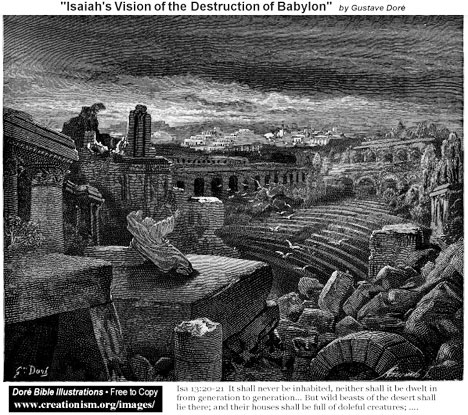
For those attempting to deal with the status quo futurist interpretation of Matthew 24, one of the most important observations is the fact that Jesus’ material has an Old Testament literary context. Some of his language is quoted from Isaiah 13. His prediction that the stars would fall from heaven comes from Isaiah’s burden against Babylon. The prophet used the Creation week as a structure for his denunciation. Continue reading
Comments Off | tags: Babylon, Creation Week, Isaiah, Literary Structure, Matthew | posted in Bible Matrix, Biblical Theology, The Last Days, The Restoration Era
Oct
18
2010
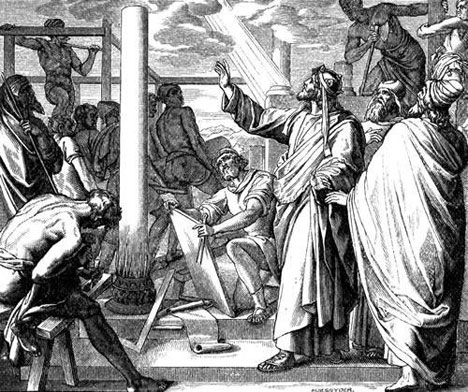
“Egypt, Judah, Edom, the people of Ammon, Moab, and all who are in the farthest corners, who dwell in the wilderness. For all these nations are uncircumcised, and all the house of Israel are uncircumcised in the heart.” - Jeremiah 9:26
Reading through the Old Testament as a young Christian, I always felt the Bible got bogged down when the Lord started pronouncing judgments upon nations other than Israel. For starters, I hadn’t paid enough attention earlier to remember who these sovereign states were. And more to the point, wasn’t God losing the plot a bit? I mean, there were plenty of other peoples during these times which aren’t even mentioned in the Bible at all.
Unfortunately, few commentators take the Bible seriously enough to understand what is actually going on. Older books will fill you in on the background, which is certainly helpful. But the big question is Why is God doing this now?, both now in history and now in the prophet I am reading?
As usual, when the structure and context of things is understood, seemingly boring “classic” texts suddenly come to life. In the case of the prophets it is a consuming fire. Continue reading
Comments Off | tags: Babylon, Creation Week, David, Egypt, Ezekiel, goliath, Literary Structure, Numbers, Numbers 5, Revelation, Solomon | posted in Bible Matrix, Biblical Theology, The Last Days, The Restoration Era
Oct
13
2010
or Yahweh’s Autostereogram
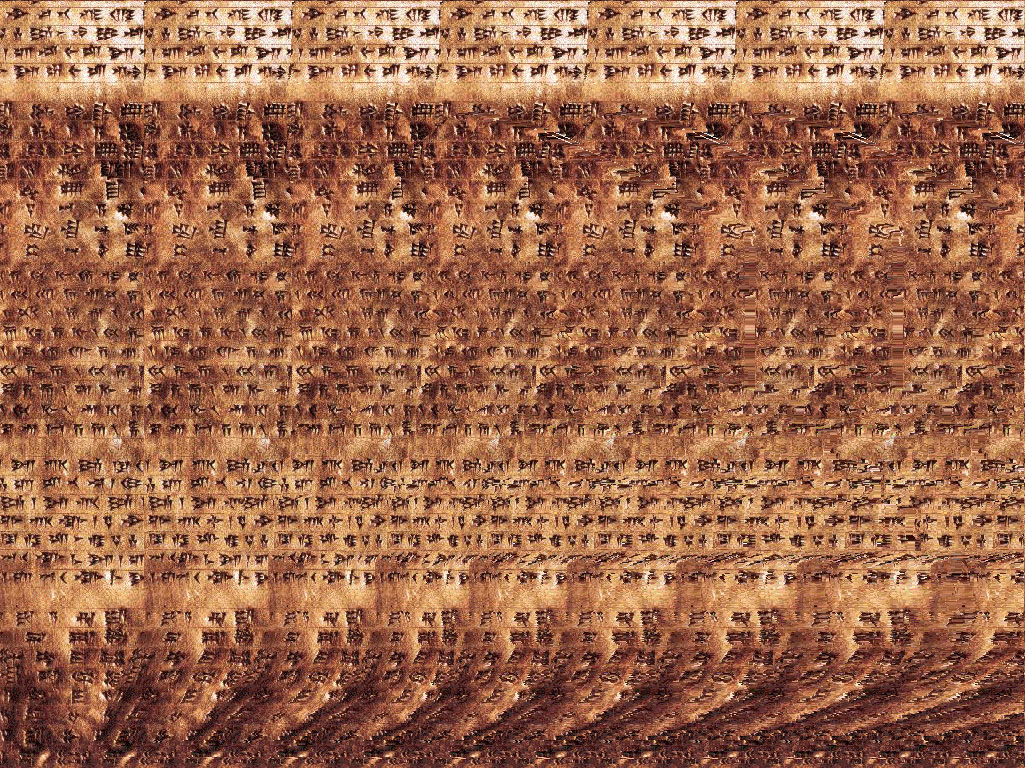
Some readers of Bible Matrix get it straight away. Some get it after a while. Some will never get it. I was thinking it’s a bit like those “autostereograms” that were really popular a few years ago. I was one of the people who stared and stared and stared for years and couldn’t see the 3D images. When I finally did see one, it was a medium-to-large brontosaurus. How did I miss that?
Identifying the Bible Matrix is the same. You have to look at the text cross-eyed. If there is enough of a correspondence, your literary mind will align the two structures. The text of the Bible is architecture. It is a temple built row by row. This is not eisegesis. It is simply a definition of exegesis you hadn’t previously been aware of. It is systematic typology.
Reader Dan Isadore wrote me: Continue reading
2 comments | tags: Genesis, Hermeneutics, Lamech, Literary Structure, Systematic typology | posted in Bible Matrix, Biblical Theology
Oct
7
2010
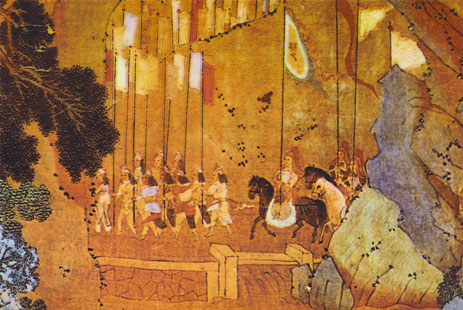
Just as the Restoration, through death in Babylon, miraculously reunited Ephraim and Judah in a new body, the attacks on the Firstfruits church miraculously reunited Jew and Gentile. The Restoration body (pictured in Ezekiel 37) was a type of the Firstfruits church. In the big picture, this new body appears in the Bible Matrix at Maturity. It was an army from the grave, a multitude of shiny individuals united and animated by the Spirit of God, moving as a single shining entity. The Creation week pictures this as flocks of birds and schools of fish. The Tabernacle images it as clouds of incense. This is the warrior bride, terrible as an army with banners.
Light – Ark-Word (Sabbath) -
Make every effort to keep the unity of the Spirit
through the bond of peace.
Continue reading
Comments Off | tags: Creation Week, Ephesians, Ezekiel, Feasts, Literary Structure, Paul, Solomon, Tabernacle | posted in Bible Matrix, Ethics, The Restoration Era
Oct
1
2010
Eschatology as Cooking

NOTE: THIS POST HAS BEEN REMIXED AND INCLUDED IN GOD’S KITCHEN.
As a young Christian, I found the New Testament irresistible and the Old Testament mysterious. But as I began to actually read through the Old Testament, I also began to find it really annoying. Instead of finding snappy answers, sound bites and knockout quotes, there are long stretches of detailed information or seemingly redundant poetry. Surely Jeremiah and Lamentations could have been combined and slashed to a few short, sad chapters. Daniel is short, but it’s second half has caused nothing but problems. Isaiah is inspiring in parts, but tedious as a family slide night in many places. He should have just gotten to the point. After all, wasn’t calf skin horrendously expensive?
Continue reading
3 comments | tags: Fractals, Literary Structure | posted in Biblical Theology, Creation
Aug
30
2010
or Who Is My Neighbour?

The content of this post has been revised and included in Bible Matrix II: The Covenant Key.
1 comment | tags: Feasts, Literary Structure, Luke, Tabernacles | posted in Bible Matrix, Christian Life, Creation, Ethics



































